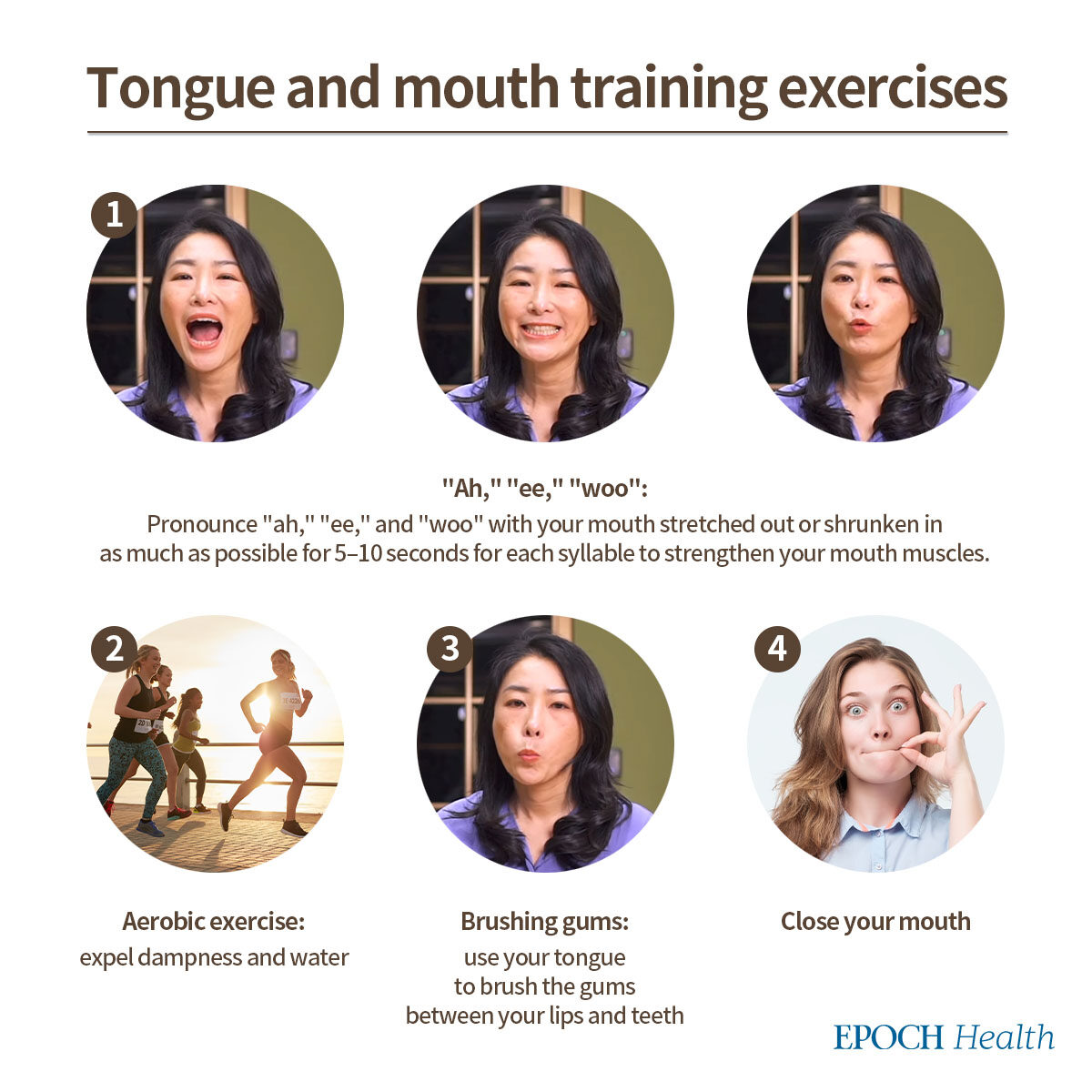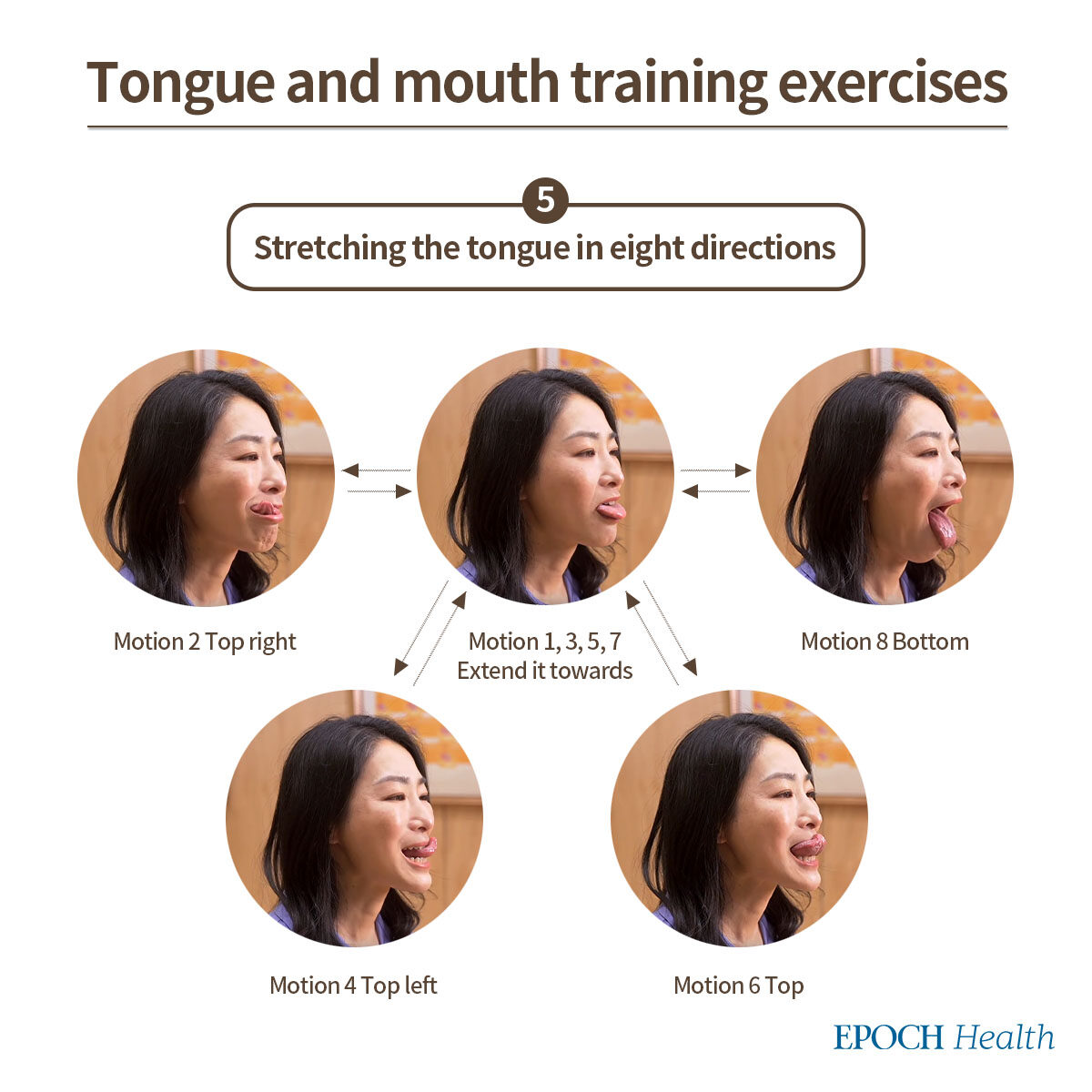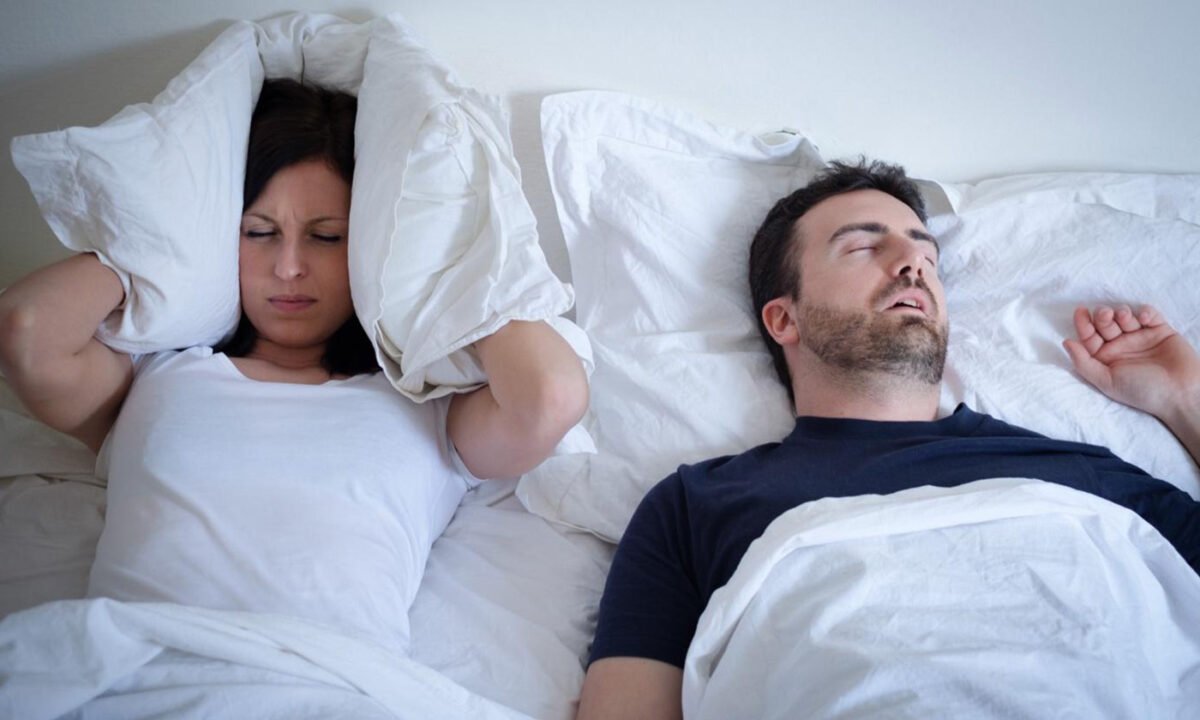Is Snoring Affecting Your Health and the Sleep Quality of Those Around You? 5 Effective Exercises for Prevention
Our snoring not only troubles our bed partners—potentially keeping them awake while we loudly slumber—but can also lead to sleep apnea syndrome. Dr. Wu Ming-chu, the director of Taiwan’s Wu Ming-chu Traditional Chinese Medicine Clinic, believes that snoring is not simply a nasal and oral problem—but that the spleen and stomach are what need to be addressed.
Snoring occurs when the tongue and soft palate muscles relax and fall back during sleep, narrowing the space in the upper jaw or throat wall. Snoring is a common condition that can affect anyone—but is more common in men and overweight individuals—and tends to worsen as we age.
Various Western Medical Solutions
In Western medicine, dentists, chest physicians, and ear-nose-throat specialists have different solutions for snoring.
Dentists use braces to pull the tongue and lower jaw forward to prevent airway obstruction. Chest physicians recommend that opening up blocked airways can be achieved by using positive-pressure breathing devices as a treatment method. The nasal clip, commonly seen advertised on the internet, also works by expanding breathing passages. Ear-nose-throat specialists may recommend removing part of the soft palate, uvula, or both sides of the nasal septum to widen airways and address snoring problems.
Ear-nose-throat specialist Dr. Zeng Hongzheng suggested in his book “No More Snoring” that snoring is caused by breathing through an open mouth because:
- The narrow and elongated oral-pharyngeal cavity collapses when the mouth is open during sleep.
- When the mouth is open, the tongue may have difficulty maintaining its optimal position on the palate. As a result, it may fall back and create a narrower space between the tongue, uvula, and the posterior pharynx. This can potentially contribute to issues such as snoring or obstructive sleep apnea, where the airway becomes partially blocked during sleep due to the narrowing of the upper respiratory tract.
- Breathing through the mouth takes in much more air than breathing through the nose, causing heavy breathing and snoring.
Though not particularly safe nor effective, anti-snoring belts and adhesive strips have emerged as solutions to keep mouths closed during sleep.
Spleen and Kidney Deficiency as Root Causes of Snoring
Wu believes that the methods mentioned above do not solve the root problem of snoring. From the perspective of traditional Chinese medicine (TCM), unless patients have congenital nasal or throat problems, snoring is related to the liver, heart, lungs, and particularly, the spleen and kidneys. If the power of the spleen and kidney qi (vital energy) is insufficient to expel dampness from the body, it will cause a phlegm-dampness constitution, which, in TCM, is considered the leading cause of snoring.
In TCM, qi is a subtle substance with strong vitality that constantly moves inside the human body, including kidney qi, spleen qi, stomach qi, and others. Dampness is a “concept” in TCM. According to TCM, natural humidity and meat consumption are sources of dampness. Phlegm-dampness refers to an abnormal state where the internal qi, blood, and body fluids transportation and transformation is imbalanced or external water-dampness invades the body and accumulates abnormally.
The body’s dampness metabolism relies on two major organs—one is the spleen—which expels excess water-dampness or unwanted waste through transportation and transformation of the spleen and stomach amid digestion—if the spleen and stomach are weak or deficient in energy, they cannot expel toxins from the body.
The other organ is the kidney, which controls urination and drainage functions to eliminate waste and toxins through sweat, urine, and feces. Congenital kidney deficiency or menopause-induced weakness in kidney qi function will affect drainage function, thus some people may not snore when they are young but start snoring when they get older.
Wu further explains that the phlegm-dampness constitution—caused by insufficient energy in the spleen and kidney failing to expel dampness from the body—is closely related to lifestyle habits and diet such as:
1. Overworking
People who do not usually snore may experience snoring if they are overly tired because their energy has not been replenished and the qi and blood regulation is not smooth.
2. Overeating of heavy-flavored foods
Heavy sweet, salty, spicy, and other heavy-flavored foods can cause water to accumulate in the body, which can produce excess fat or edema—in the concept of TCM, these factors can trigger phlegm-dampness constitution.
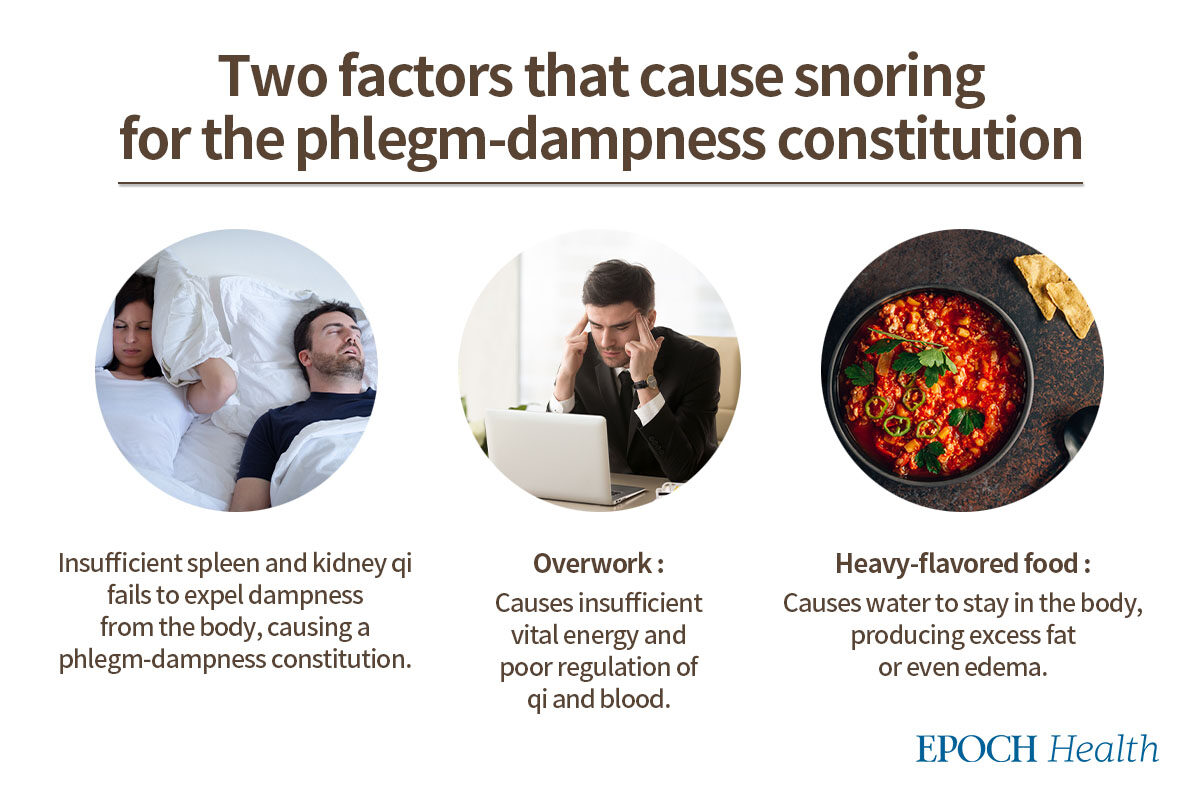
3 Tips to Improve Snoring Problems
Because the root cause of snoring lies in the phlegm-dampness constitution, the solution is to strengthen the spleen and stomach and increase the body’s water-dampness metabolism. Wu said there are three easy methods to accomplish this:
1. Develop good habits in daily life
The most straightforward way to strengthen the spleen is to avoid eating late-night snacks as it will increase phlegm and dampness, and it’s also the main reason for water and fat accumulation in the body.
2. Get plenty of exercise
Exercise can drain water and phlegm dampness. Sweating during exercise helps with water metabolism in the body. For those who do not like exercise, Wu suggests using passive methods such as the TCM treatments of cupping and acupuncture to remove dampness. She said that many people have a lot of moisture in their cups during cupping, indicating that excess moisture has accumulated in their bodies.
3. Reduce heavy-flavored foods
Excessive consumption of heavy foods such as fatty meats, fried foods, creamy sauces, cheeses, pastries, and dishes with a high concentration of oils or butter burdens the body, while moderation in the diet (neither too much nor too little) is recommended by TCM.
Wu also recommends drinking Si-shen Decoction and Si-junzi Decoction as a dietary therapy for strengthening the spleen and removing dampness. Especially after exercise when excessive fluids are discharged, it is necessary to replenish with water and good soups. In addition, pressing on acupoints such as Leg Three Miles (ST 36) and Three Yin Intersection (SP 6) can help remove dampness.
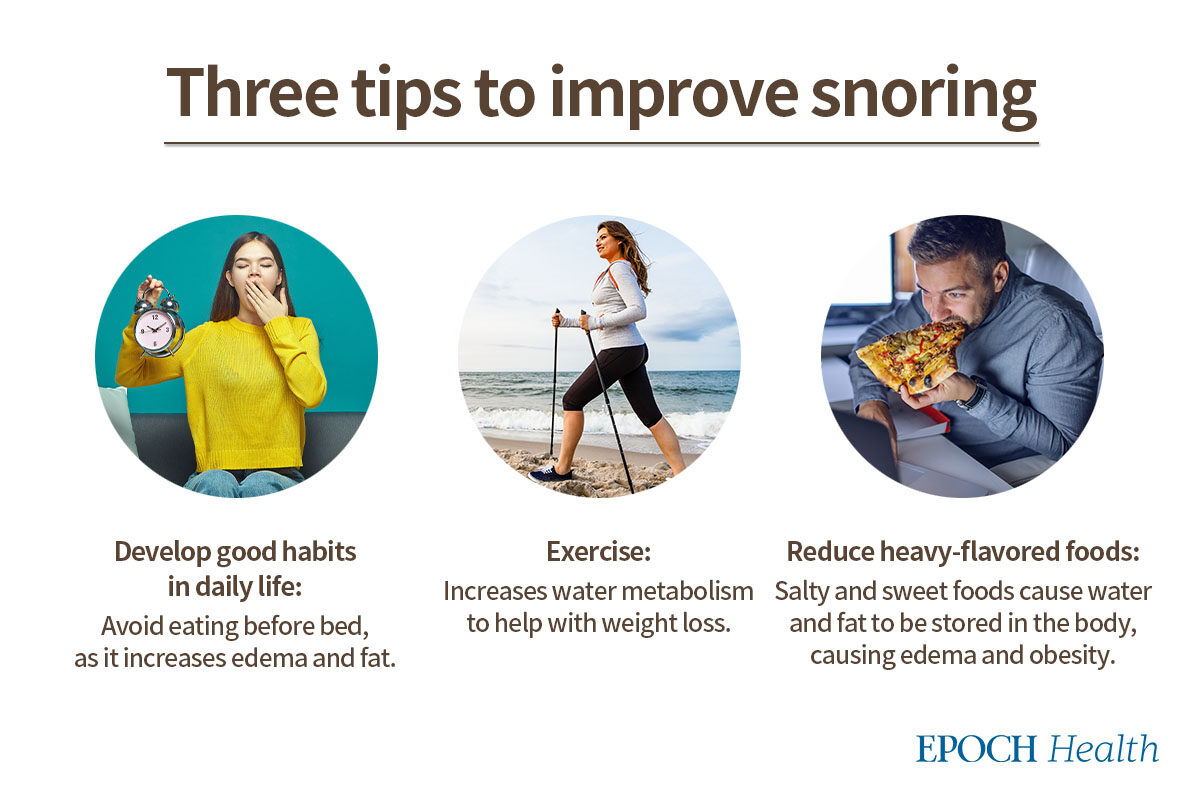
Are Anti-Snoring Devices Effective?
As for whether anti-snoring devices available through the internet are helpful, Wu believes that closing the mouth without solving the root cause of spleen and stomach problems is only a temporary solution.
Will anti-snoring clips that widen the airway and ensure smooth airflow help? Wu believes snoring sounds will still occur if the body’s water dampness is not metabolized. In addition, some patients with severe snoring may also have sleep apnea, and doctors may advise some to remove their tonsils.
Wu reminds everyone that the tonsils are an important defense barrier in the human body. Removing them is like opening the door for pathogens. She said that she had a patient who had his tonsils removed because of frequent inflammation and later, an infection caused swelling in his throat. This situation is dangerous because the brain locates above the throat. Wu reminds everyone to think twice before undergoing tonsil surgery.
Exercise to Stop Snoring
Exercise is a basic method to solve snoring problems. I suggest two types of exercises to help solve snoring problems.
1. Aerobic exercise
The best exercise to eliminate moisture is cardio, such as brisk walking, jogging, and going up and down stairs. For healthy adults, the “Physical Activity Guidelines for Americans” recommends at least 150 minutes of moderate-intensity aerobic exercise per week and at least two days of muscle-strengthening activities per week. Moderate-intensity exercise means you are able to talk—but not sing—while exercising.
As for those who want to do brisk walking exercises, the speed should be sufficient to induce light sweating. If you tend to stroll when walking outdoors, it may be better to train on a treadmill in a gym.
2. Tongue and Mouth Muscle Exercises
Although the fundamental solution for snoring is to address the spleen and stomach, practicing closing the mouth and exercising the tongue muscles also helps solve the snoring problems.
-
“Ah,” “ee,” “woo”
The mouth can involuntarily open due to insufficient strength of the mouth muscles. You can strengthen those muscles by practicing pronouncing “ah,” “ee,” and “woo” with your mouth stretched out wide or shrunken in as much as possible for 5–10 rounds to strengthen your mouth muscles.
-
Brush your gums
Close your mouth tightly and use your tongue to brush the gums between your lips and teeth, extending to every corner as much as possible, using a manageable speed. Brushing one round takes about 10 seconds. You can brush clockwise or counterclockwise and brush five rounds at a time.
-
Close your mouth
Always remind yourself to keep your mouth closed whether you are working, watching TV, or sleeping.
-
Stretching the tongue in eight directions
Stretch out your tongue and extend it in eight directions, staying in each direction for 5–10 seconds.
